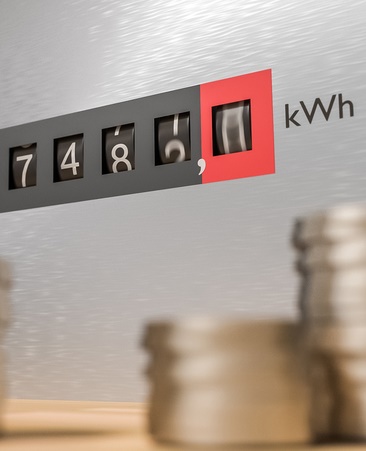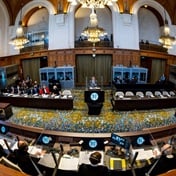
The huge water price hikes in the City of Cape Town council's draft budget have highlighted what environmentalists say is a flaw in the process of municipal financing.
Under the current system, there are only so many ways a municipality can bring in money.
Charging residents for services such as water, electricity and refuse removal brings in, on average, 47% the revenue of South African municipalities, according to the Chartered Institute of Government Finance, Audit and Risk Officers (CIGFARO).
In Cape Town, services account for 49% of revenue, and property rates 23.7%.
A problem arises when there is a shortage of resources such as water or electricity and municipalities encourage, or instruct, residents to use less. In doing so, they cut deeply into one of their biggest sources of income. They have to make up the shortfall, so they increase tariffs.
Such is the case in Cape Town.
26.9% increase
As the effects of the three-year drought in the Western Cape became more acute, national government told users to cut consumption. In turn, the City council told Cape Town residents in January to live on no more than 50 litres a person a day or face the prospect of the taps running dry.
Now, after living for months in water-stress mode, saving shower water in buckets, sponge-bathing, wearing clothes multiple times to save on laundry, letting gardens die and urine build up in loos, Capetonians have been congratulated by the council for cutting consumption from 900 million litres a day last year to around 520 million litres a day this year.
But then came the bad news: Capetonians were told that their water and sanitation bills would increase by 26.9% from July.
The proposed price hikes, contained in the City council's draft 2018/19 budget, are not final, and the public has until May 4 to comment.
On top of this, there is a proposed fixed basic charge for water of R56.
There has been a lot of angry reaction on social media to the tariff hikes and a protest march to Parliament by Save Cape Town and Stop CoCT. The question everyone was asking was how could it be possible that residents were to be charged so much more for using so much less?
'Sorry, we'll have to charge you more'
Taryn Pereira from the Environmental Monitoring Group (EMG) says the answer lies in the inherent problem with the way municipalities are financed.
"EMG and the South African Water Caucus have been raising for many years the conflict that a municipality faces as a result of needing to manage water demand, as well as to earn revenue from selling water.
"So in Cape Town it's a case of: 'Thanks for helping save water, you've all done a great job, but we now have less money in our coffers because we've sold less water, so we will have to charge you more.'"
The City says the water saved by citizens has resulted in a R2bn loss in revenue.
Out of the City's R49.1bn draft budget, R39.8bn is for operations and R9.2bn for capital projects. The capital budget will be funded by grants from national and provincial governments, donations and loans.
The City says in its budget that it makes no profit from the sale of water, electricity, rates or the provision of sanitation.
Lower increases for big users
Also, whether citizens are drawing less water or more, the City still has to carry out the same operations, repairs and maintenance programmes on the water infrastructure.
"Whether you use more or less, it costs the City the same to provide it," the City said in the budget.
It says the low cost of water is unsustainable. It points out that it charges 3c a litre for water, whereas a fizzy cooldrink is around R12 a litre. Based on Level 6 water tariffs, a consumer could buy 400 litres of municipal drinking water for the price of a coke.
The City has dropped the six steps of the water tariffs to four, but has kept the system of charging consumers higher tariffs the more water they use. But in the proposed tariff hikes, the big users have a far lower percentage increase than those who use less.
For example the table below, taken from the draft budget, shows that people who used 6 000 litres a month and currently pay R24, will have to pay R146 a month – an increase of 486%.
Yet the big users, who consume 80 000 litres a month, who now pay R10 487 a month, will pay R5 324 – a decrease of 49%.
Pereira believes this is not a good sign, as poorer households and those people who are consciously cutting water consumption will shoulder the burden of paying for climate change.
"The only sense I can make of this is that they do not want to discourage high volume users too much because they still hope to earn some income from them. But at the low volume steps where everyone will be consuming, no matter how basic your water supply is at home or how much water you save, they are aiming to generate a lot of revenue," she said.
The fixed water tariff of R56, coupled with the tariff hikes, would mean that monthly water bills would become expensive for some people.
"And in such an unequal society as ours, this will hit the low-income households hard."
Environmentalist Patrick Dowling said those who had been most careful about saving water would be those who would bear the brunt of the new tariffs.
"The City is talking about the 'new normal' with regard to water resources and climate change, but is still using the old tariff structure, which is 'we are going to hit you with big tariff increases'."
Sustainable living
Both Pereira and Dowling say cities need to look at a new ways of municipal funding, particularly new ways of getting revenue for water.
"There needs to be a national conversation about alternative financing models for water under climate change, so that water saving is seen unequivocally as a good thing for everyone, not as a financial challenge for municipalities," Pereira said.
Dowling said sustainable living, of which reducing water usage formed part, would have a huge impact on the current economic structures.
"Sustainability is a circular economy but the world economy is generally linear, and those two lines do not meet up."




 Publications
Publications
 Partners
Partners























